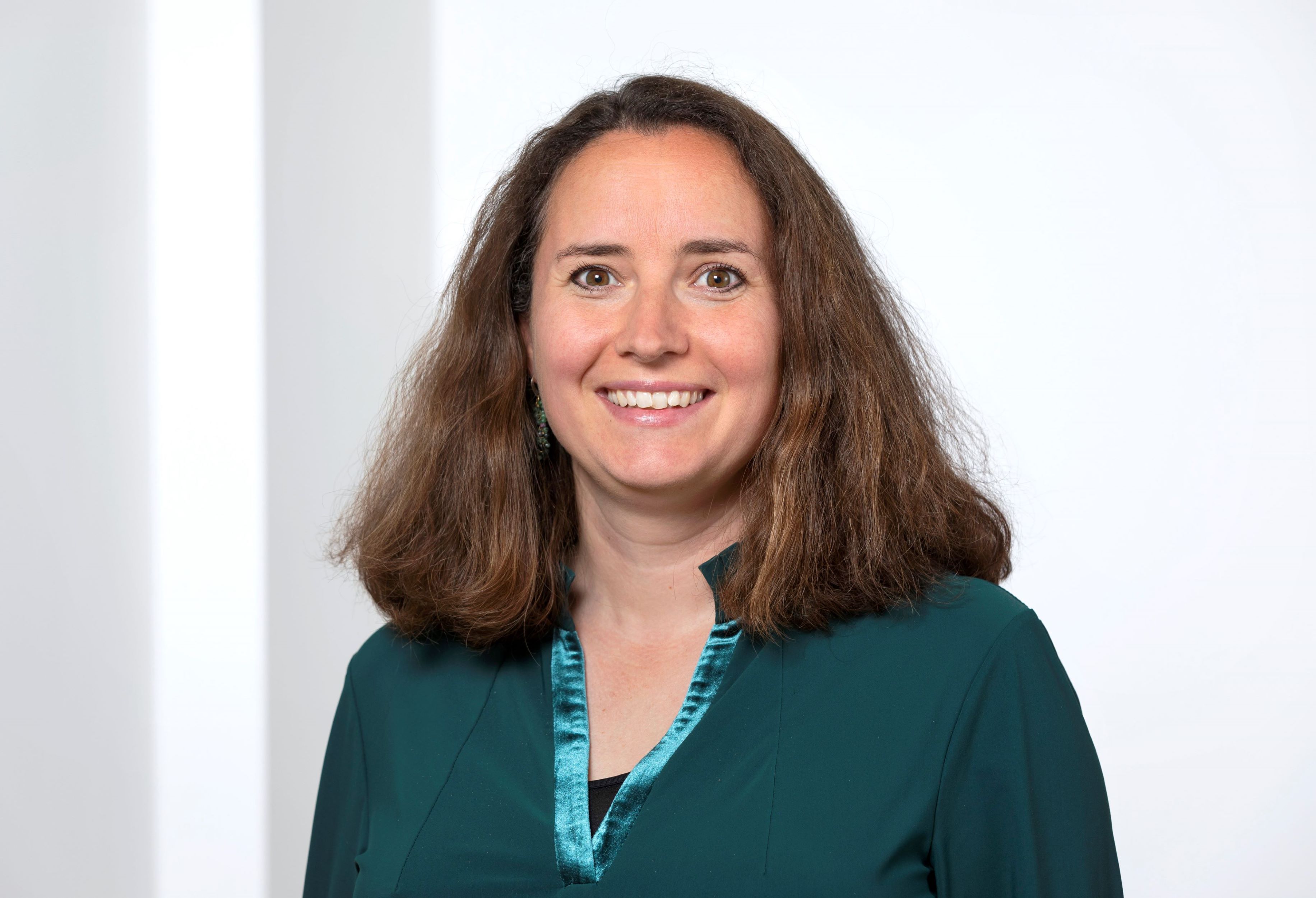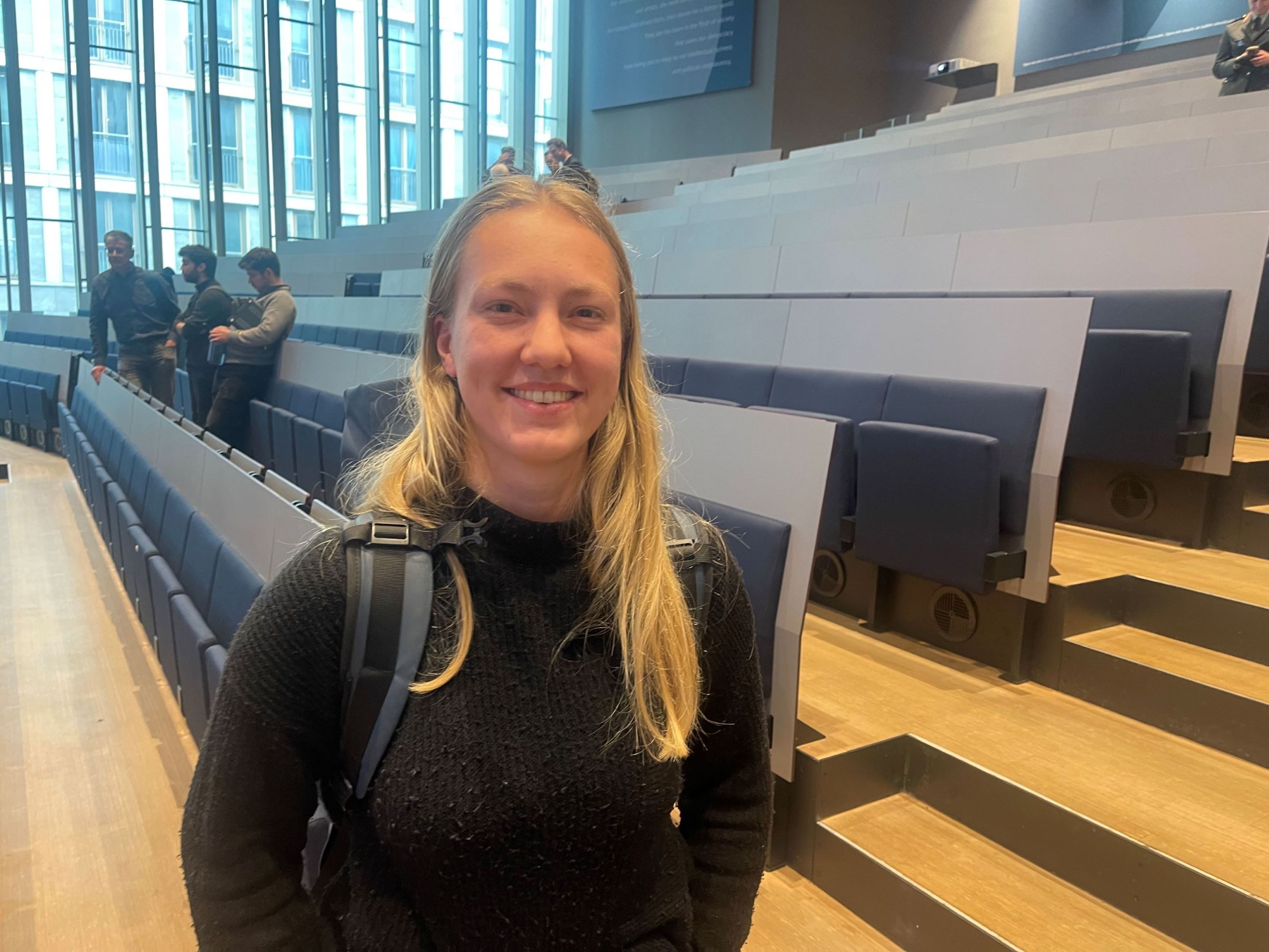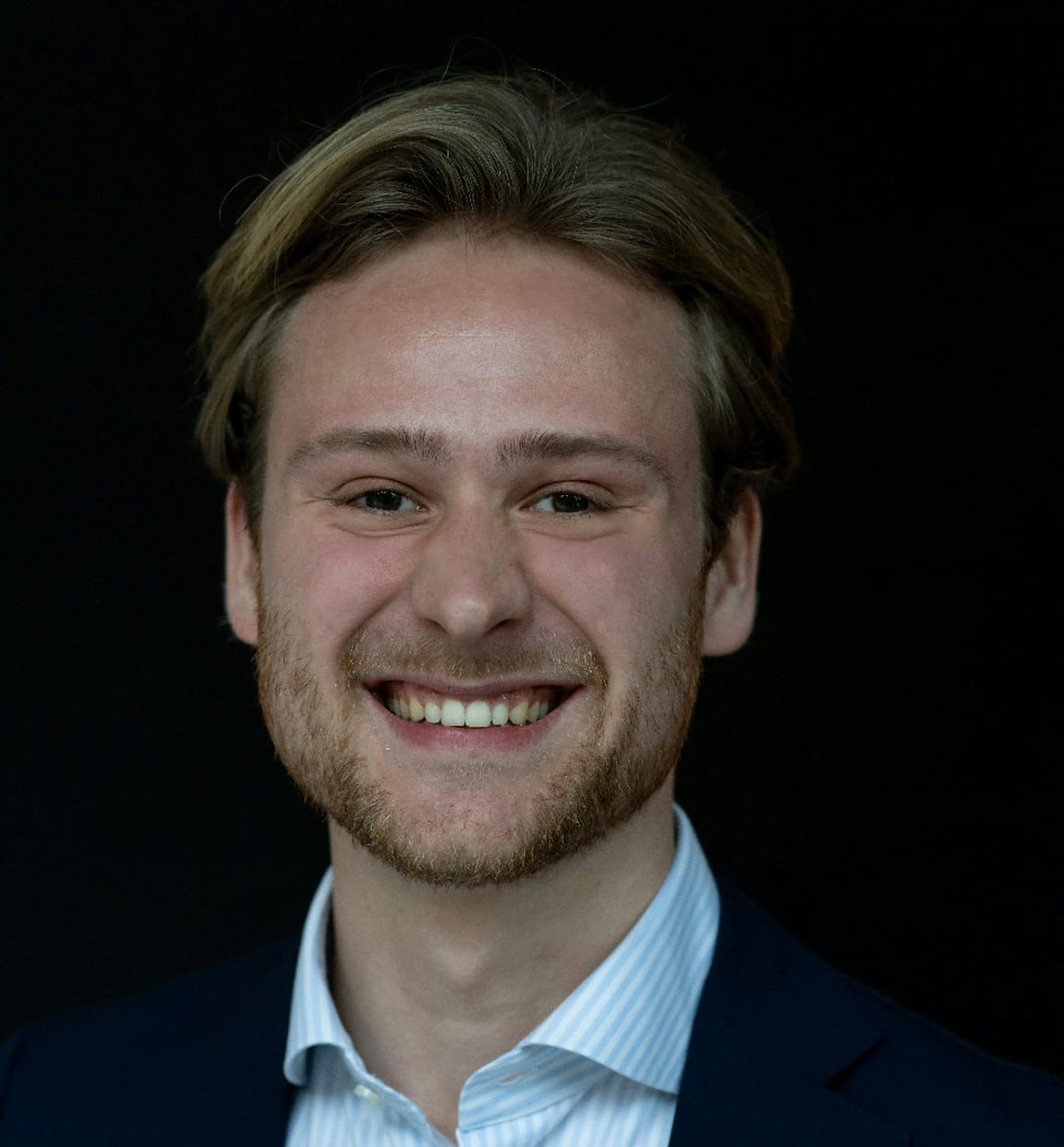
Minister Ollongren impresses with personal speech: 'Our strongest weapons are people'
After 2.5 years as defence minister, it is time for Kajsa Ollongren to hand over the baton. In front of a packed audience, she gave her farewell speech at Leiden University in The Hague on Tuesday, which included personal lessons and memories, from sleeping on the ground with the prime minister to the war in Ukraine.
Below is a summary of what Ollongren uttered in her lecture.
'You guys need to take over'
The outgoing minister directly addressed the students in the room: 'You are today's students and therefore tomorrow's leaders. Handing over the responsibility, here today, does not mean I am passing it on to the next defence minister. I am handing it over to everyone in our organisation, the army, but especially to you. You must take over.'
The title of the English speech is therefore 'Handing Over Responsibility'.

Ollongren looks back at several crises, including the banking crisis. 'Fortis Bank was on the verge of collapse. We travelled to Belgium to negotiate with the bankers and I slept there on the floor in the prime minister's residence and the prime minister on a chair next to me before we made the decision the next day.' She has learnt from the experience and realises that cooperation is very important: 'Solutions can always be found by working together.'
'You are a hero'
'Everything came together when I became defence minister, just before the invasion of Ukraine,' she says. 'In Normandy, I saw heroes of the past. Those passing on responsibility to the next generation. I saw old men crying and that made an impact. Zelenski knelt by a veteran and said 'you are a hero' and the veteran said 'no, you are a hero'. That touched me. They are both heroes. We are living in an important time. We need leaders, who have confidence in their team.'

More than ‘toys for the boys’
'Every leader needs a team around him to make something possible. As a leader, you have to make choices, hard choices. One of these choices is that we needed to strengthen our defence, but there is no unlimited budget. Are more F-35s the solution? Again, we have to make choices, because defence is more than 'toys for the boys'. When the war in Ukraine started, we had no doubts about what to do. We had to work hard and persevere. We seemed like arms dealers instead of the Ministry of Defence.'
Ollongren stresses that a 360-degree focus is badly needed. 'If we look at Ukraine, it continues in the Middle East. If we focus on the North Sea, we should also look at the Pacific. How do we prioritise Ukraine while also looking at other threats? How do we learn from the past and also look to the future, to technology, AI, drones, intelligence affecting us? We can no longer hit the snooze button. The next war is not a copy of the current war. The biggest threat now is war fatigue, not Putin.'
'Preparing for tomorrow's conflict'
Partners are badly needed now and in the future, Ollongren knows. She gives industry and knowledge institutes as examples. 'The ministry must be linked to the community. We need everyone. We have to prepare for tomorrow's conflict, find better solutions for the future. That is also what I want to pass on to the next minister. Our strongest weapons are people, because they make change and difference possible. We know 17 million coaches at the European Championship and the same goes for war. It is not so difficult to come up with an analysis, a solution is much more difficult. There is still plenty of work ahead.'
Text: Magali van Wieren
Photos: Arash Nikkhah

Audience
The hall was full of students, defence personnel, professionals and other interested parties. People were very appreciative of Ollongren's speech:

Tjarda Krabbendam-Hersman, Divisional director TNO Defence and Security
'I found it an inspiring speech. What I immediately took away from it is that leadership in the security domain requires choices (including difficult choices), cooperation is a must and there should always be room for how we can learn. The current security situation calls for innovation, a new way of working. It is easy to come up with a proposal for change, it is harder to come up with a proposal for solutions, was one of Minister Ollongren's statements. I feel empowered to work with my TNO colleagues in collaboration with other knowledge and security partners to come up with solutions for a resilient Netherlands and Europe.'

Alisa Hoenig, student & intern The Hague Centre for Strategic Studies
'For me, it was especially interesting to hear about the day-to-day work of a politician. I remember her telling me that there are always some big topics in politics that get a lot of attention (in society, in the news, etc.). Right now, for example, that is Ukraine or Gaza. But as a minister, you have to go further and look at all the other places and plans that also affect our society. She also talked about modernising and expanding defence. Then new machines like the F-35 are always sexy, but you also have to look at trivial things, like sufficient pay for soldiers. I found it inspiring to hear these nuances and will definitely take that into account in my work. For my internship and soon master's, I am always doing political research where these kinds of details are important. And I am always curious about the focus of ministries.'

Abel Buijnsters, student Crisis and Security Management, War and Peace
'I think an important message was that we need to create understanding, support and openness regarding defence. For many people, it is a distant issue, it is abstract or can be seen as something disruptive. Through openness and communication, we can work on our security without creating resistance among people.'
